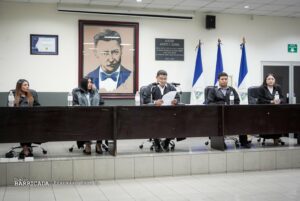At the end of May of this year, agents of the Attorney General’s Office (PGR) arrived at a house that is part of a condominium on the North Highway of Managua. The purpose of the visit was to notify the owner of the house that his property was now in the hands of the State.
The owner of the property is a cousin of one of the 94 people whose nationality was taken away by the regime of Daniel Ortega and Rosario Murillo on February 15. These are in addition to the 222 political prisoners who were banished and denationalized a week earlier.
In total, there are more than 300 people who, in addition to being stripped of their citizenship, the seizure of their real estate and companies was ordered.
The house that the PGR workers seized was indeed under the name of one of the 94 denationalized persons. However, this was because the credit to buy the house was acquired by the politically persecuted, since his cousin did not apply for the loan at that time.
Recibe nuestro boletín semanal
Buyers affected by confiscations
The house, valued at more than 60 thousand dollars, was paid for more than 10 years ago, according to the affected relative. The change of name was not done during all this time, and this gave the regime the opportunity to take the house from a person who is not involved in politics.
The above is just a case that shows how confiscations are being carried out against politically persecuted by the dictatorship. From the list of 94 denationalized citizens, DIVERGENTES confirmed that at least 28 of them have had their assets confiscated in Nicaragua. This number increases if one takes into account family members or third parties who have lost their property as a result of this confiscation crusade.
Since the 2018 crisis, the Ortega-Murillo regime has confiscated media facilities, NGOs, diplomatic headquarters, and universities. Now it is moving forward with the houses or different properties of opponents who have been banished or exiled due to threats from the ruling party.
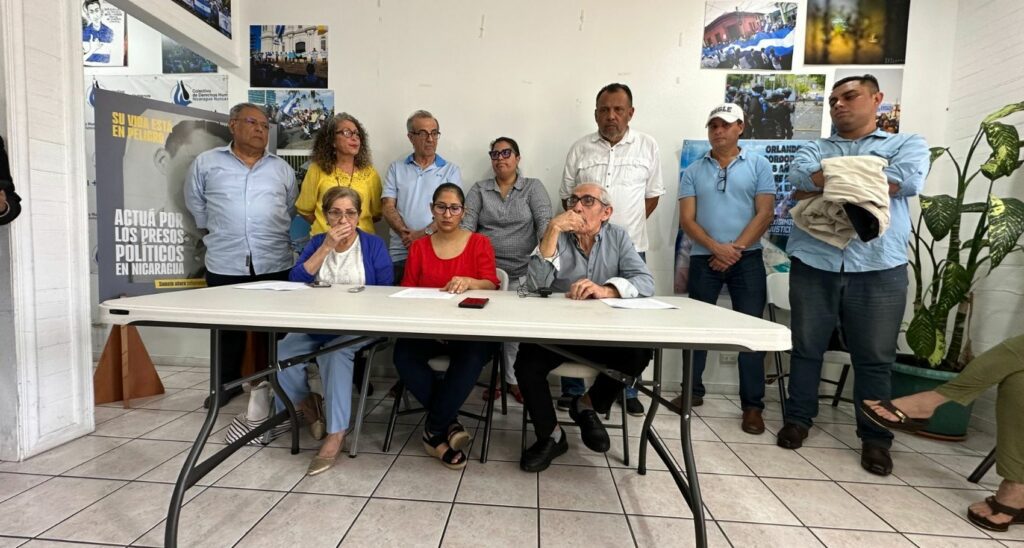
Police chief in confiscated car
A human rights defender in exile – who requested anonymity – said that his house and car were confiscated since mid-June of this year. The PGR agents told his relatives that both the house – in which some of the human rights defender’s relatives were living – and the car, “became State property”.
“A police chief drives my car,” says the human rights defender, who does not reveal the name of this policeman for fear that his relatives in Nicaragua will suffer retaliation. “My house and my car were stolen, now they say it belongs to the State,” adds the activist.
Intendencia de la Propiedad is the executing agency
Through different consultations with several people affected by the confiscations of their properties, DIVERGENTES confirmed that property expropriation is carried out by Intendencia de la Propiedad, a branch of the PGR, as well as by officials of Catastro, a department of the mayor’s office in charge of conducting property appraisals. In some cases, the confiscation operations are carried out with the presence of the Police.
During these confiscation operations, topographers have arrived to take measurements, but also workers with sledgehammers or tools to break down the doors, in case there is resistance from the owners or occupants of the houses.
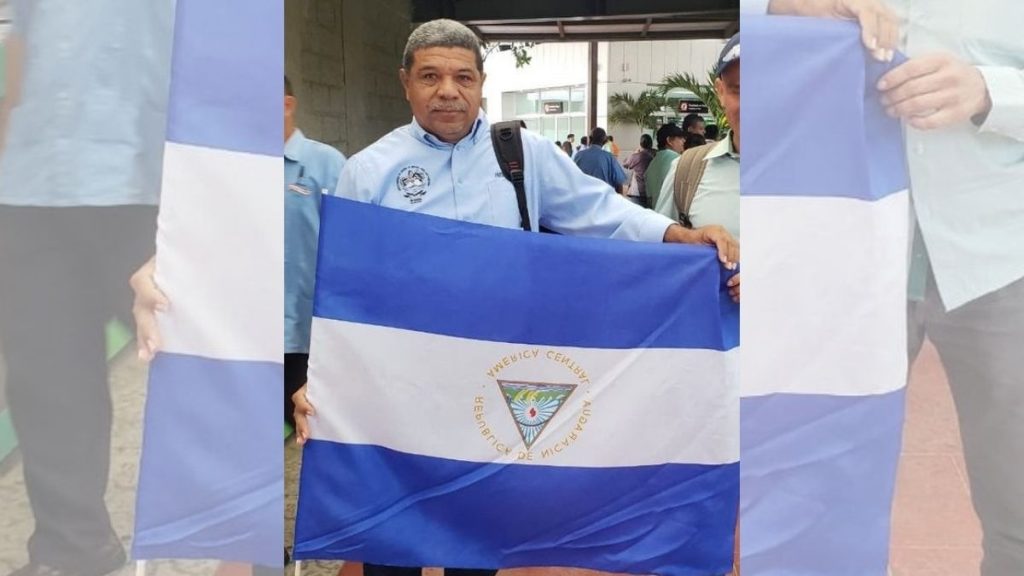
Dispossession of houses from relatives or third parties
On February 9, Magistrate Ernesto Rodríguez Mejía, president of the Court of Appeals of Managua, read a sentence against 94 people, accused by the Public Prosecutor’s Office of “treason”.
The 94 persons were sentenced to absolute and special disqualification to hold public office, “to exercise public functions in the name of or at the service of the State of Nicaragua, as well as to hold popularly elected positions and the loss of their citizenship rights for life respectively”, according to the resolution of the Ortega justice system.
In addition, it ordered the loss of Nicaraguan nationality, the immobilization and confiscation of all real estate and companies, which the defendants have registered in their favor, either personally, or legal entity or companies in which they participate as partners, “to answer for the crimes committed to the defendants are declared fugitives from justice”.
However, the resolution has moved on to third parties with links to the properties. For example, at the end of March, one month after the sentence against the 94 people, police officers arrived at a former house of the mother of professor Ernesto Medina, included in the list of “traitors to the homeland”.
Medina went into exile in 2021 in Germany, while the regime executed a hunt against opponents, prior to the presidential elections of that year. Medina has been a Sandinista dissident since the 1990s, the decade in which he began to serve as rector of the National Autonomous University (UNAN) of Leon.
He then served for 8 years as rector of the American University (UAM), owned by the Nicaraguan Military. In 2018 he actively spoke out against human rights abuses committed by the Sandinista regime, and was part of the opposition blocs, Civic Alliance and National Coalition.
All this was reason enough for the regime to persecute him. It turns out that the house confiscated by the dictatorship in March of this year was inherited by Medina’s mother to him and his 12 siblings.
They decided to sell the property some years ago, but the new owner did not register the house in his name. So because the papers still had Medina’s name on them, the property was confiscated.
“I cannot comment on something that is not mine, it will be the current owners who will have to give statements if they deem it convenient. I can only say that it is another arbitrariness and abuse of the Ortega dictatorship”, said Medina when consulted.
Confiscations trespass personal property
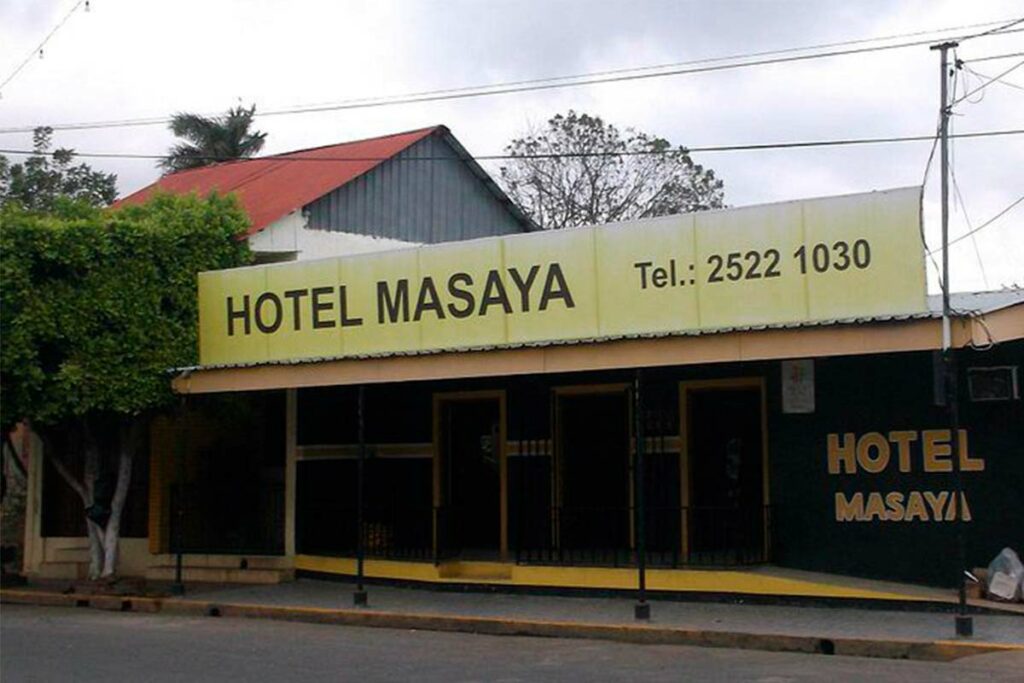
Irlanda Jerez, a former political prisoner, who is also another of the list of denationalized persons, denounced that in September of this year they confiscated a warehouse in Managua. Earlier, in February, she had reported the occupation of a house in the Los Angeles neighborhood, also located in the capital.
“It is a two-story building, property that before the 1980s belonged to my father and later passed into my hands when we bought it, more than 20 years ago”, said Jerez.
Another similar case is that of Anibal Toruño, director of Radio Darío, who denounced, on March 24, the confiscation of his son’s house in León, where he is from. “This is a violation that trespasses my personal property”, he expressed through his Twitter account (now X), and explained that the authorities took “household goods that are unseizable”.
In 2018, Sandinista mobs set fire to the facilities of Radio Darío. Two people died in that fire. After being included in the list of 94 banished persons, Toruño denounced that they froze his bank accounts.
Freddy Navas, a former political prisoner, also denounced that the police violently confiscated his wife’s house, which was rented. “The house has always been under my wife’s name, it was never under mine,” said Navas.
Another former political prisoner, Cristhian Fajardo, said that the PGR and the Police took three family properties: a hotel, a joint family house and his home. “This was an inheritance that my parents left me in life, because I still have them in life. It has been the family estate, the effort of my mom and dad’s work,” added Fajardo.
La Piñata, an old Ortega practice
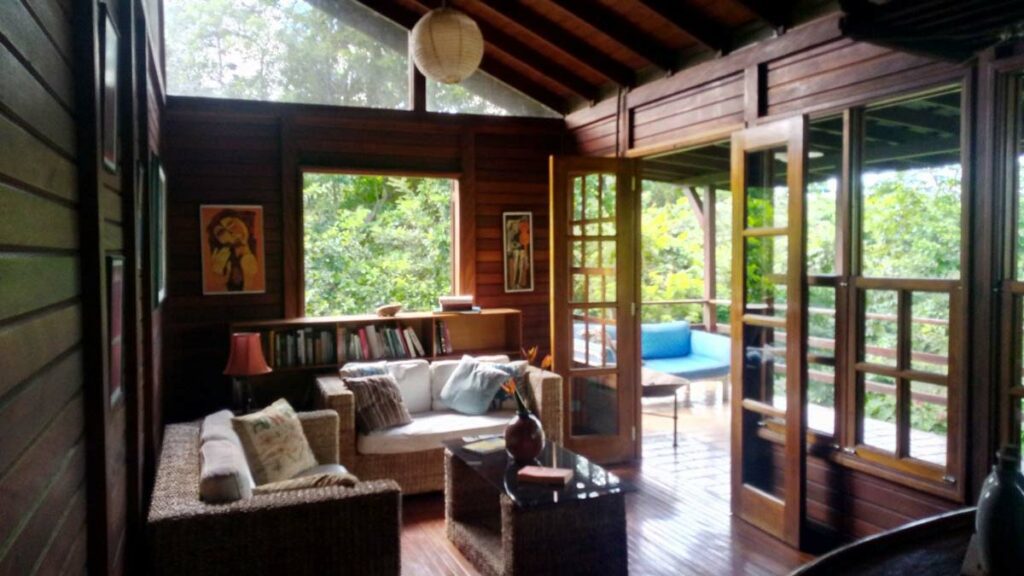
The new confiscatory crusade is similar to the one made by the first Sandinista government in the 80’s, known as “La Piñata”, when party leaders expropriated houses and properties.
Daniel Ortega himself confiscated Jaime Morales Carazo’s house, where he lives. Morales Carazo was a Somocista at the time, who would later become Ortega’s vice-president when he returned to power in 2007.
The first “Piñata”, as was to be expected, caused serious judicial problems that resulted in a debt of more than 2.2 billion dollars, which Nicaraguans continue to pay through taxes.
The payment of the “Piñata” has been through Indemnity Payment Bonds (BPI), which were incorporated to the General Budget of the Republic since 1998 to finance the indemnification of those affected by the first “Piñata” of the Sandinista Front.
The compensation came several years after the confiscations, when the Sandinistas left power. Many of the owners became U.S. citizens, and several of them reported receiving only a portion of the value of the properties.

